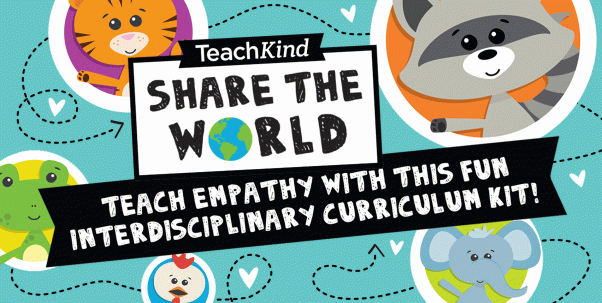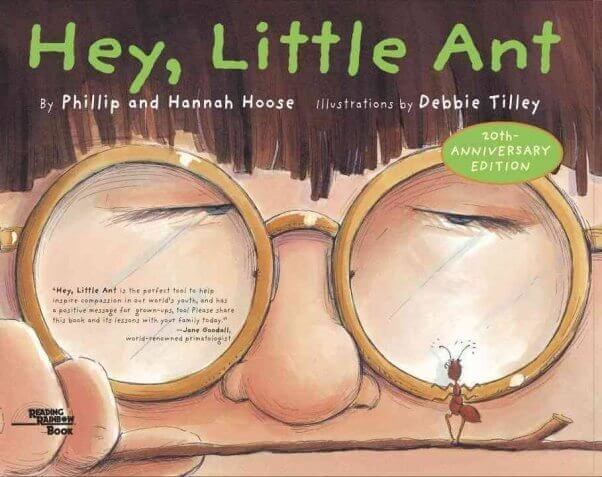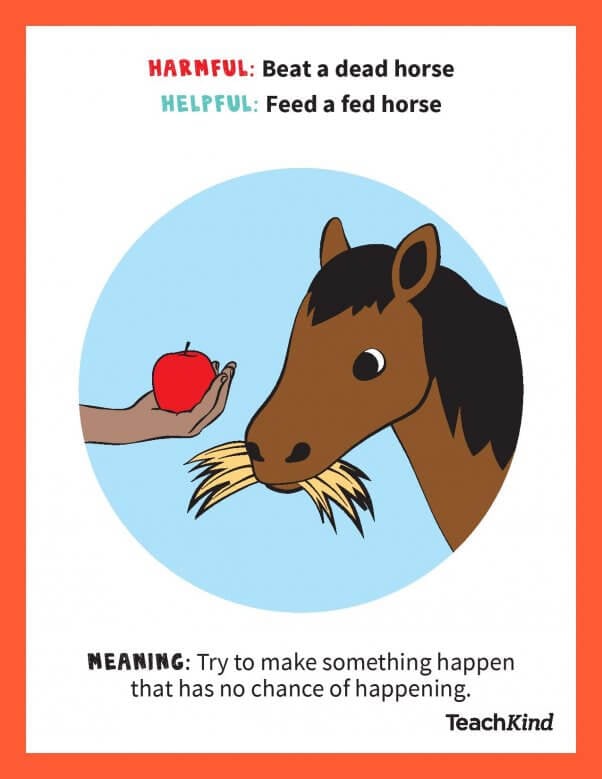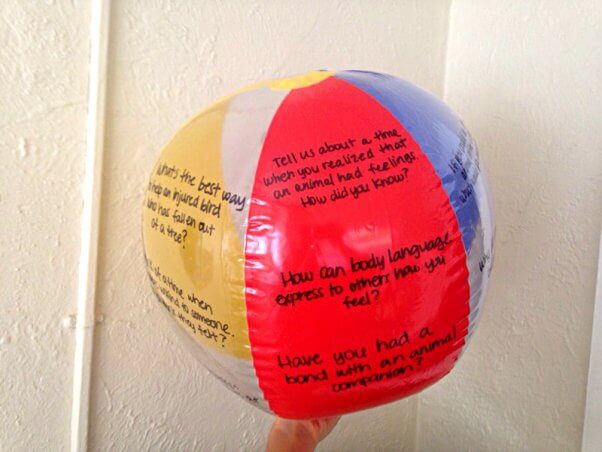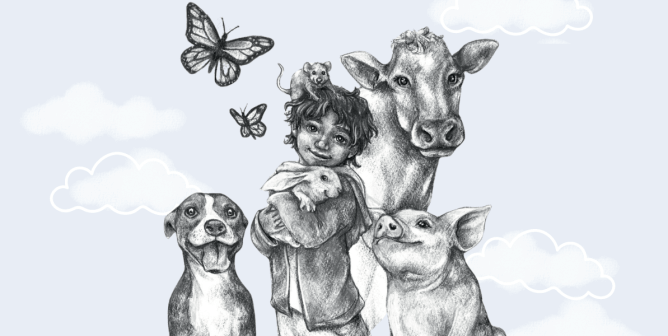Top 6 Lesson Plans for National Bullying Prevention Month
October is National Bullying Prevention Month, and while efforts to reduce violence in our schools and communities should be a priority year-round, what better time than now to start a frank discussion about cruelty to animals? Statistics shows that kids who hurt animals might be on a dangerous path that will only lead to worse behavior if not corrected. But the opposite of this profound fact is also true—when young children learn kindness to animals, they take a key step toward rejecting all violence, bullying, and hatred in their teens and beyond.
TeachKind offers dozens of curriculum-aligned lessons and activities, all of which promote compassion, empathy, and kindness for human and nonhuman animals alike. Check out our top six resources for discouraging bullying in your classroom:
Share the World
Share the World is an all-inclusive curriculum kit, perfect for teaching elementary school students the Golden Rule and the importance of compassion and empathy. Each pack includes a 23-minute video featuring age-appropriate information about animals, coloring sheets, an anti-bullying poster, and teachers’ guides—plus in-depth lesson plans targeted to students in grades K to 2 and 3 to 5. The best part is that like all TeachKind materials, Share the World is completely free. Order yours today!
‘Hey, Little Ant’
‘Hey, Little Ant’: Little Guy Makes a Big Case perfectly demonstrates how to help students develop empathy and compassion while also teaching them academic skills, such as persuasive writing. Hey, Little Ant is a charming children’s book that details an ant’s compelling argument against being squashed by a towering boy and teaches students that no matter what their outward appearance may be, all living, feeling beings are deserving of life and respect. Browse our list of other humane children’s books, too.
Animal-Friendly Idioms
Download and print these animal-friendly idioms posters, then hang them throughout your classroom as a reminder for students—and teachers—to use kind words when talking about others. Phrases such as “kill two birds with one stone,” “beat a dead horse,” and “bring home the bacon” carry harmful messages that can send mixed signals to students about the relationship between humans and animals and can normalize abuse. Teaching students to use animal-friendly language can help cultivate positive relationships between all beings and deter youth violence toward animals.
The Empathy Ball
This DIY Empathy Ball game has an animal-friendly, anti-bullying, empathy-building twist. It’s great for helping students of all ages open up and connect with each other—making it a useful tool to use all year round. Simply write several thought-provoking, empathy-focused questions on a beach ball, and gently toss it from person to person, sharing insights in response to each question and teaching students to respect one another’s experiences. This activity provides students with the chance to connect and learn to be kinder individuals.
Gallery Walk
Get creative and inspire meaningful conversations among students with a gallery walk. Use evocative photos to get students thinking about social justice issues. Then, have them share their thoughts silently by writing short responses on large pieces of paper posted throughout the classroom. Gallery walks give confident speakers and reluctant learners alike a platform to share their unique viewpoints, leveling the academic playing field and bringing new perspectives to the table.
Debate Kits
TeachKind’s debate kit series covers a wide variety of animal rights issues, from the effects of animal agriculture on the environment to the use of marine mammals for entertainment. These lessons build students’ research, argumentative writing, and presenting skills while simultaneously promoting empathy not just for animals but also for humans. Resources included in each kit walk students through the process of forming an opinion, backing it up with well-documented evidence, anticipating a counterargument, and preparing a rebuttal—all steps necessary for healthy conflict resolution and the exchange of ideas.
*****
These are just some of the many lessons and activities that TeachKind offers to help combat the epidemic of youth violence against animals—there are many more!
Need more animal-friendly inspiration for your classroom? Join TeachKind’s mailing list!
By submitting this form, you’re acknowledging that you have read and agree to our privacy policy and agree to receive e-mails from us.

